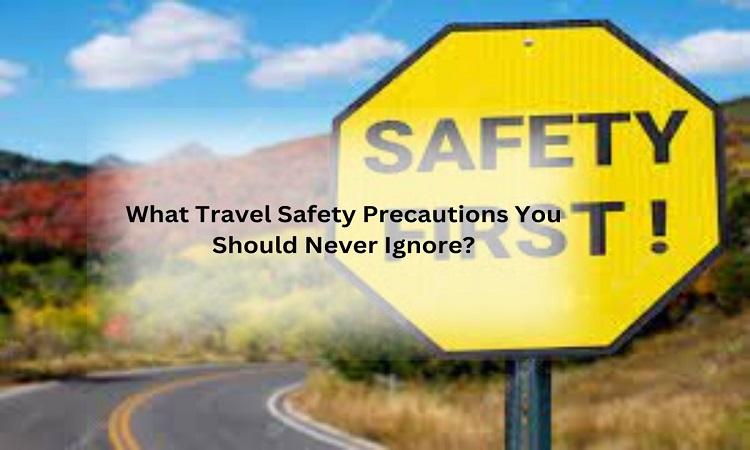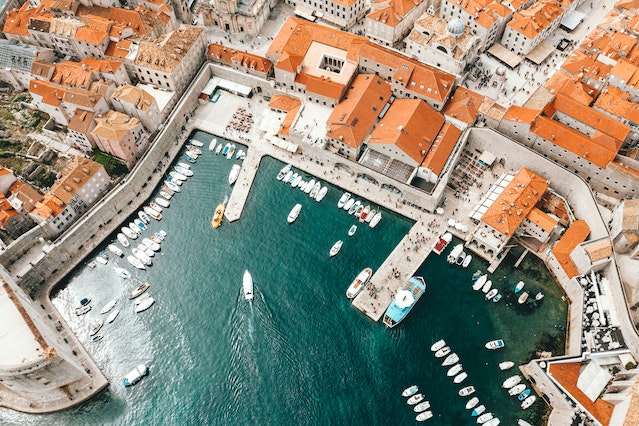The travel safety precautions that should never be ignored are highlighted in this article. In addition, we will present sunglasses with a camera, an innovative solution that enhances your safety and adds a fashionable touch to your travel gear.
When going on a trip, safety should always come first. It is essential to be aware of potential risks and to take the necessary precautions whenever you embark on outdoor adventures or explore new cities.

11 Travel Safety Precautions You Should Never Ignore
1. Do Research before embarking on your journey
Plan and conduct extensive research before setting out on your journey. Learn about the laws, customs, and any potential safety concerns. Keep up with current events and read travel warnings.
Carefully plan your trip, including where to go, where to stay, and what to do. Being well-informed enables you to avoid potentially risky situations and make informed decisions.
2. Protect Your Assets
When you travel, it is essential to safeguard your valuables. Buy a lock for your luggage that is strong and dependable, and use it whenever you leave your belongings unattended. Use a money belt or a hidden pouch to keep your credit cards, cash, and passport safe.
Avoid displaying costly electronics or jewelry that may draw unwanted attention. Also, consider using a camera that fits in your sunglasses. It’s a clever and subtle gadget that lets you take pictures without using your hands and keeps your belongings safe.
3. Maintain Situational Awareness in Crowded Areas, Tourist Spots, and Public Transportation
Keep an eye on your surroundings, particularly in crowded areas where pickpockets may operate. Avoid being distracted by people bumping into you or making a scene. Constantly monitor your personal belongings and refrain from disclosing private information publicly.
By discreetly recording video or photos of any suspicious activities, sunglasses with cameras can add extra protection to your personal safety.
4. Choose Reputable Transportation
Select licensed and reputable transportation providers when traveling. Make an informed decision based on your research into the most secure modes of transportation at your destination. Be aware of any known dangers when taking public transportation, such as crowded buses or metro stations during peak hours.
Rely on official services or reputable ride-hailing apps rather than unlicensed taxis. Always buckle up when driving a car and wear a helmet when riding a bike or motorcycle. You can lessen the likelihood of unfortunate events or accidents by placing safety first during transportation.
5. Keep in Touch and Share Your Trip
Keep in touch with your loved ones and trusted contacts back home. Include details about your accommodations, transportation, and contact information in your travel itinerary. Make regular contact with them to update them on your whereabouts.
Having someone aware of your plans can expedite assistance in an emergency. You could live stream your travels or capture moments that you can share with your loved ones in real-time with the help of sunglasses with a camera feature, adding a layer of security.

6. Respect the Culture and Traditions of the Area
Each location has its distinct cultural norms, traditions, and customs. Respect them and adhere to them to avoid disagreements or misunderstandings. When going to conservative or religious locations, dress modestly. Learn the proper manners, gestures, and conduct in your locale.
When discussing political issues or sensitive subjects, exercise caution being a traveler. Respect and cultural sensitivity increase your safety and encourage friendly interactions with locals, resulting in meaningful connections and memorable travel experiences.
7. Buy Travel Insurance
It is a must-have investment to safeguard yourself from unforeseen circumstances. It covers medical emergencies, trip cancellations, lost or stolen items, and other possible risks. Select a comprehensive travel insurance policy that meets your needs with care.
Check to see that it includes your planned travel destination and activities. Travel insurance gives you peace of mind because it ensures you will be financially secure in an emergency or other unforeseen circumstances.
8. Take care of your lodgings
- Make it a priority to stay in hotels or other lodgings with good reviews.
- Examine the hotel’s security measures, such as surveillance systems, safe entry points, and a 24-hour front desk.
- Choose rooms on higher floors because they are typically safer.
- Lock all windows and doors before you leave your room.
- Place your valuables like passports, jewellery, and electronics in the hotel safe.
- Avoid revealing your keycard or sharing your room number with strangers in public areas.
9. Manage your money safely
- Bring the necessary amount of cash with you, and keep it safe in a hidden money belt or a pouch that you wear under your clothes.
- Use credit or debit cards for transactions; however, you should exercise caution when entering your PIN at ATMs or in crowded areas.
- Consider informing your bank of your travel plans to avoid issues with international card transactions.
- In public, you should avoid counting money or displaying large sums of cash because doing so can draw unwanted attention.
10. Be careful when using public Wi-Fi
Hackers can access public Wi-Fi networks like hotels, airports, and coffee shops. Do not enter passwords or access personal accounts or other sensitive information when connected to public Wi-Fi.
Use a virtual private network (VPN) to encrypt your connection and safeguard your data if you need to access such information. Alternatively, you could use a portable Wi-Fi hotspot or rely on your mobile data connection.

11. Keep up with local happenings and news
- Keep up with local news, events, and potential dangers before and during your trip.
- Subscribe to government travel alerts for your destination, consult travel warnings, and follow dependable news sources.
- Avoid high tensions and keep an eye out for any local protests, demonstrations, or civil unrest.
- Follow the instructions or guidance provided by local authorities, your embassy, or the consulate if there are any security concerns.
Use your instincts
Your intuition can frequently be a helpful safety device. Trust your instincts when you feel uneasy or unsafe about something. Remove yourself from an uncomfortable or potentially hazardous circumstance as quickly and calmly as possible.
Contact the authorities in the area, the staff at your hotel, or trusted locals for assistance. Your safety should always come first, so don’t hesitate to ask for help or direction when needed.
Conclusion
While traveling is an exciting and enriching experience, safety should always come first. You can reduce risks and ensure a safe and smooth journey by adhering to these essential travel safety precautions.
Additionally, when you take a camera and sunglasses on your trip, you can record memories while ensuring your safety. Throughout your travels, remember that your health and safety are of utmost importance.